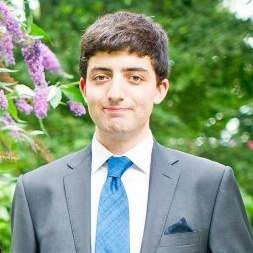The Moscow Philharmonic Orchestra enjoyed an evening of youthful exuberance in the Bridgewater Hall with an all-Russian programme, conducted with grace and refinement by Yuri Simonov.
Modest Mussorgsky’s Night on the Bare Mountain explicitly paints what the composer called “Spirits of darkness...and the Black Mass” in a progressively wild orgy before the bells of dawn break the scene. Simonov opted for a generally slow but quite variable tempo through the majority of the piece, in contrast to the common tendency to push for a firmly brisk pace in many readings. This was an interesting adjustment, removing any risk of seeming formulaic with such a popular piece, but added little to the sense of untamed nature. It did make some of the themes suggest folk music, particularly in the oboe/bassoon duet passages. The orchestral playing was as passionate as could be expected: plenty of brassy bite and roars from the percussion section. The dawn passage gave the string section its first opportunity of the evening to display its wonderful sound; rich and full in tone, filling the large hall without straining.
The main parts of the programme consisted of Rachmaniov’s first piano concerto and symphony, both works which were initially viewed as failures but were later revived. Pianist Barry Douglas’ technical virtuosity and musical sensitivity were evident from the outset of the concerto, and he continued to craft a performance of panache and beauty in equal measure. His delivery of sound and control of touch were marvellous throughout, particularly in the broadly lyrical second movement. Elsewhere, brooding lower strings were fine accompaniment for the soloist and occasional woodwind flourishes, and the horn section created a pleasingly warm, full sound even at quiet dynamics. The excitability and bouncy attack of the third movement were well managed by Simonov, who also made the most of his beautifully sonorous string section. The first of the evening’s many encores, a Brahms Intermezzo, was a satisfying epilogue to a gutsy and yet sensuous reading of a fine concerto.
The première of Rachmaninov’s Symphony No. 1 was by all accounts a disaster, largely due to the probable inebriation of maestro Glazunov, and it was seldom heard again until being rediscovered two years after the composer’s death. A single theme, taken from the Dies Irae plainchant, unites the symphony, occurring at the beginning of every movement. In the interims, Simonov swept through the music with a spacious sense of structure, bringing power and nuance to the orchestral playing. The string section continued to impress with its characteristic broad, rich sonority and also fine attention to articulation details in the fugal development of the first movement. The brass and percussion sections made an excellent sound throughout, bright, focussed and well balanced to the rest of the orchestra, notably near the close of the Allegro ma non troppo, where they made a huge sound. The lilting charms and belligerent brass interjections of the second movement were in sharp contrast to the elegiac clarinet melodies of the Larghetto, suggestive of the third movement of Alexander Borodin’s Symphony No. 2. The following dark introspection and its subsequent resolution to wistful contentment were quite moving. The fourth movement, with its noisy brass/percussion themes, is a joyful deviation from what has gone before. A marvellous oboe solo, bold and yet quietly melancholic, gave way to the persistent return of boisterous percussion episodes, before finally the brass section crafted another vast sound to close the piece to elated applause. So vehement were the audience that three further encores followed, from Rachmaninov first, and then works by Glazunov and Tchaikovsky featuring Concert Master Dmitry Shorokhov and first cellist Igor Zimin. The understated beauty and skittish playfulness of these works were a very pleasing end to a fine concert.


